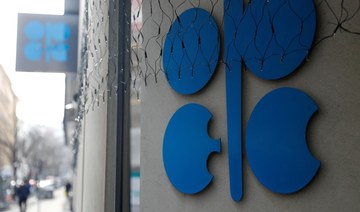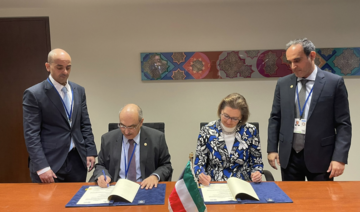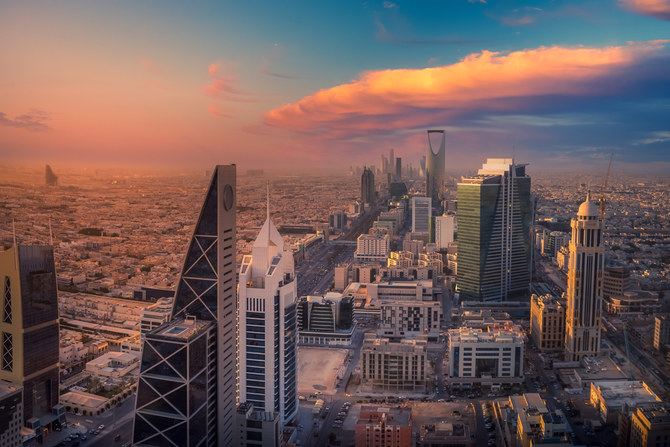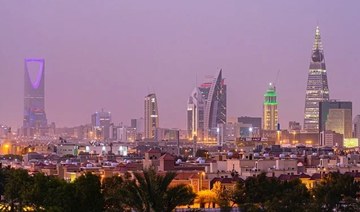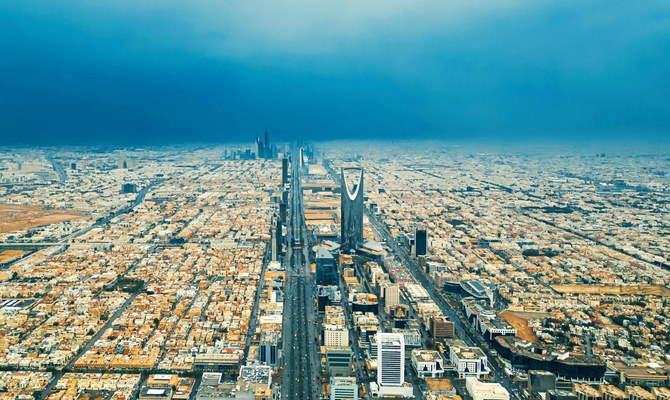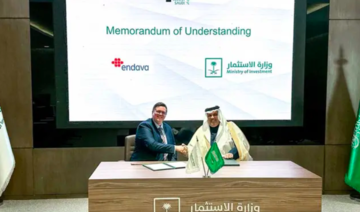CAIRO: Saudi Arabia’s fintech sector has made significant strides as it nears its goal to become a regional financial hub, according to a report by Arthur D. Little.
In its latest study titled “Realizing Potential of Fintech in Kingdom of Saudi Arabia,” the international management consulting firm highlighted the rapid growth and innovation within the sector, spearheaded by initiatives such as Fintech Saudi.
Launched in April 2018 by the Saudi Central Bank, also known as SAMA, and the Saudi Capital Markets Authority, Fintech Saudi has been a pivotal force in promoting the Kingdom as the leading fintech hub in the Middle East and North Africa.
The initiative includes programs such as an accelerator, career fair, fintech tour, and summer sessions, contributing to a 20-fold increase in the number of fintech companies in the Kingdom since the program’s establishment.
To date, more than SR4 billion ($1 billion) has been invested in local fintech companies, with over 100,000 individuals participating in related events and training programs, the report said.
The adoption of a national strategy in May 2022 marked a significant advancement in the country’s fintech sector.
The strategy is built on six pillars, which include establishing the Kingdom as a regional fintech hub, fostering a regulatory environment conducive to growth, providing funding for startups, enhancing skills training, accelerating support infrastructure, and promoting local and international collaboration.
Ambitious goals
The Vision 2030 goals include the establishment of at least 525 fintech companies by 2030, up from 200 in 2023, the creation of 18,000 fintech job opportunities, up from approximately 5,400 in 2023, contribute SR13.3 billion to the gross domestic product, a substantial increase from around SR3.75 billion in 2023, and achieve SR12.2 billion in direct venture capital contributions, compared to SR5.2 billion in 2023.
Fintech Saudi has catalyzed this growth through various initiatives, including the Fintech Accelerator Program, the Fintech Saudi Innovation Hub, and an online Fintech directory.
Additionally, the establishment of a fintech regulatory sandbox by SAMA has allowed for controlled live testing of fintech innovations, easing their transition to the open market. Further boosting the sector, the Saudi Venture Capital Co., backed by CMA and the Financial Sector Development Program, has launched a SR300 million fund focused on fintech startups, with plans to invest an additional SR6 billion in startups and small and medium enterprises across various sectors.
So far, SVC investment in 35 VC funds has facilitated over 900 deals and SR1.9 billion in investments. Additionally, the Saudi National Technology Development Program has introduced the Technology Development Financing Initiative, providing debt funding to support startups.
A cashless society
“Saudi Arabia has embarked on a journey to transform society to be less dependent on cash transactions,” the report noted, highlighting the FSDP as instrumental in this shift by fostering a regulatory environment conducive to the growth of payment companies.
The ambition of Vision 2030 is notably high, aiming to increase the proportion of non-cash transactions to 80 percent by 2030, up from just 18 percent in 2016.
Remarkably, by 2021, cashless payments constituted 62 percent of all transactions, significantly surpassing the interim targets, the report stated.

Saudi Arabia has embarked on a journey to transform society to be less dependent on cash transactions.
Mohammad Nikkar, principal at Arthur D. Little
This rapid adoption has been supported by the integration of innovative payment solutions, including digital wallets, local transfers, QR code payments, and the SADAD system for bill payments.
“According to data released by SAMA, digital wallet usage has seen an exponential rise from 315,000 in 2018 to 17 million by 2022, representing over half of Saudi Arabia’s population,” the report stated.
Initially, bank transfers dominated as the primary method for topping up these wallets, but by 2022, around 80 percent of top-ups were being made via debit or credit cards, indicating a shift in consumer behavior.
The report also sheds light on the increasing reliance on digital wallets among expatriates for international transfers, with non-Saudi users of digital wallets increasing from 17 percent in 2018 to 45 percent in 2022.
Among the leaders in this burgeoning market are stc pay and urpay. stc pay, in particular, has distinguished itself as the first fintech unicorn in the Kingdom, with a notable 25 percent year-on-year increase in profits in 2022, as stated in the report.
Alternative financing
The report, co-authored by Mohammad Nikkar, principal at Arthur D. Little, and Arjun Vir Singh, partner at the firm, delved into Saudi Arabia’s alternative financing sector, notably buy now, pay later and debt crowdfunding, which has become the second-largest fintech subsector after Saudi Payments.
BNPL usage has surged from 76,000 customers in 2020 to over 10 million in 2022, with market leaders like Saudi-based Tabby
and Tamara expanding across the Gulf Cooperation Council, the report explained.
Debt crowdfunding is also growing as a vital funding source for SMEs. Since 2019, investors have issued over 1,800 loans worth more than SR1.1 billion, with SR770 million disbursed in 2022 alone.
However, challenges persist with rising interest rates and fluctuating approval rates.
Challenges
“While the future for fintech in Saudi Arabia looks bright, there are still some important challenges to overcome,” the report stated.
Increasing Saudi Arabia’s visibility on the international stage is crucial. The report emphasizes the need to enhance the Kingdom’s global profile by articulating its unique fintech ecosystem offerings to attract more global entrepreneurs and investors.
“Streamlining regulatory frameworks. Efforts to simplify the setup and licensing processes are underway to create a more navigable regulatory environment for fintech entities. Continued enhancements in this area will support both local and international ventures,” the report added.
Furthermore, expanding funding avenues is also essential. The development of more accessible financial mechanisms such as accelerators and grants is expected to invigorate the investment climate, allowing a diverse range of fintech initiatives to flourish, the report explained.
Addressing the talent gap is also a priority as strategies should be implemented to cultivate local expertise and address challenges like high turnover and competitive salary demands.
Moreover, optimizing investment in infrastructure to reduce the cost of essential technology, while ensuring compliance with local data regulations, is also a vital aspect.
Lastly, fostering international partnerships is key to the long-term success of Saudi fintechs, helping them adapt and thrive in the global market, the report explained.
“By addressing these areas thoughtfully, Saudi Arabia can enhance its fintech ecosystem, ensuring robust growth and sustainable development in the years to come,” it added.
Transformational drivers
The consultancy identified six transformational drivers essential to overcoming existing challenges and ensuring robust growth within the Kingdom’s fintech landscape.
The report emphasized the need for elevating Saudi Arabia’s global positioning in the fintech domain. The Kingdom aspires to enhance its international presence by illustrating its unique value propositions and inviting participation from global fintech innovators.
This could be achieved through forging international alliances and showcasing Saudi advancements at global fintech symposiums, potentially increasing its influence not just in the MENA region but globally.
On the regulatory front, the report suggests that Saudi Arabia refine its regulatory processes and align them more closely with international best practices, particularly in burgeoning sectors like open banking.
Strengthening the angel investor network and fortifying public-private partnerships are also seen as vital steps to provide foundational support for early-stage initiatives and reinforce growth for mature firms.
Additionally, the report advocates for significant investment in educational programs tailored to fintech and associated industries.
Lastly, the report highlights the importance of managing infrastructure costs by encouraging a competitive tech provider market and local data-hosting solutions, supported by government incentives for technological advancements.




